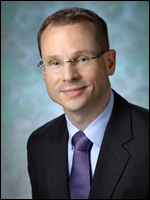American Thyroid Association
Tatiana de Lourdes Fonseca, PhD – Rush University Medical Center, Chicago, IL
What is the Role of Type II Deiodinase (D2)-Mediated T3 Production in Liver and its Repercussion to Energy Expenditure?
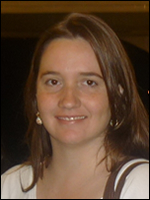 Tatiana Fonseca, PhD is a Staff Scientist in the Division of Endocrinology and Metabolism at Rush University Medical Center. Tatiana Fonseca earned her undergraduate degree in Physiotherapy at Pontifícia Universidade Católica of Minas Gerais, Brazil. She obtained her PhD in Morphofunctional Sciences from the Department of Anatomy at the University of Sao Paulo, Brazil where she worked with Dr. Cecília Gouveia studying the interaction of the sympathetic nervous system with thyroid hormone in the regulation of bone mass and metabolism. She completed her postdoctoral training in March of 2014 in the Division of Endocrinology, Diabetes and Metabolism at the University of Miami Miller School of Medicine under the mentorship of Dr. Antonio Bianco. She has been working with Dr. Bianco for the past 4 years to develop tissue-specific knockout models to study the deiodinases. Recently, she moved from the University of Miami to Rush University Medical Center where is a staff scientist on Dr. Bianco’s team. Currently she is investigating the role of type II deiodinase (D2)-mediated T3 production in liver and its repercussion to energy expenditure.
Tatiana Fonseca, PhD is a Staff Scientist in the Division of Endocrinology and Metabolism at Rush University Medical Center. Tatiana Fonseca earned her undergraduate degree in Physiotherapy at Pontifícia Universidade Católica of Minas Gerais, Brazil. She obtained her PhD in Morphofunctional Sciences from the Department of Anatomy at the University of Sao Paulo, Brazil where she worked with Dr. Cecília Gouveia studying the interaction of the sympathetic nervous system with thyroid hormone in the regulation of bone mass and metabolism. She completed her postdoctoral training in March of 2014 in the Division of Endocrinology, Diabetes and Metabolism at the University of Miami Miller School of Medicine under the mentorship of Dr. Antonio Bianco. She has been working with Dr. Bianco for the past 4 years to develop tissue-specific knockout models to study the deiodinases. Recently, she moved from the University of Miami to Rush University Medical Center where is a staff scientist on Dr. Bianco’s team. Currently she is investigating the role of type II deiodinase (D2)-mediated T3 production in liver and its repercussion to energy expenditure.
Press Release
Leo Kim, MD, PhD – Massachusetts Eye and Ear Infirmary, Boston, MA
Animal Models of Acute and Chronic Thyroid Eye Disease
Dr. Leo Kim received his M.D. and Ph.D. at Yale University as a member of the NIH-sponsored Medical Scientist Training Program. He completed his residency and fellowship in Ophthalmology and Retina and Vitreous Surgery at the Doheny Eye Institute at the University of Southern California. He is a practicing retinal specialist in the Department of Ophthalmology at the Massachusetts Eye and Ear Infirmary, Investigator at Schepens Eye Research Institute, and Instructor in Ophthalmology at Harvard Medical School. He is member of the Harvard K12 clinician scientist program and dedicates the majority of his time towards basic science research. His research is focused primarily on vasculogenesis and his interest in thyroid eye disease stems from the realization that both the retina and orbital tissues contain blood vessels, but lack lymphatic vessels. Lymphatic vessels play a critical role in draining interstitial fluid from tissues. His research proposal attempts to evaluate the molecular mechanisms underlying the lack of lymphatic vessels within the orbit and to test the hypothesis that the lack of lymphatic vessels within the orbit is involved in the pathogenesis of thyroid eye disease.
Press Release
Peter Taylor MB, ChB – Cardiff University, United Kingdom
The Impact of Maternal and Offspring Genetic Variants on Phenotypic Outcomes in the Controlled Antenatal Thyroid Screening Study (CATS).
 Peter Taylor, is a Welsh Clinical Academic Trainee in Diabetes and Endocrinology. Dr Taylor obtained his medical degree from the universities of St. Andrews and Manchester and developed a keen interest in thyroid research as an SHO at the Edinburgh Royal Infirmary under Dr. Toft. Since commencing his specialist training in diabetes and endocrinology, he has in parallel pursued a career in research and under the guidance of Professor Dayan, was awarded a MRC scholarship to study a MSc in epidemiology at the London School of Hygiene and Tropical Medicine.
Peter Taylor, is a Welsh Clinical Academic Trainee in Diabetes and Endocrinology. Dr Taylor obtained his medical degree from the universities of St. Andrews and Manchester and developed a keen interest in thyroid research as an SHO at the Edinburgh Royal Infirmary under Dr. Toft. Since commencing his specialist training in diabetes and endocrinology, he has in parallel pursued a career in research and under the guidance of Professor Dayan, was awarded a MRC scholarship to study a MSc in epidemiology at the London School of Hygiene and Tropical Medicine.
From research awards he has performed full thyroid function in over 4,500 children in the internationally renowned birth cohort the Avon Longitudinal Study of Parents and Children, creating the largest European dataset of children with thyroid function who also have extensive genetic and phenotypic data. Interrogation of this dataset and the Clinical Practice Research Data-link (a large UK primary care database) is the focus of his research. This work has already resulted in 2 key publications in JCEM and another in JAMA internal medicine as well as several oral and poster presentation awards at national and international conferences. He also recently jointly undertook the first UK national survey of the management of amiodarone induced thyrotoxicosis and received the highest scoring clinical abstract award at the British Endocrine Society annual conference with his work on the impact of thyroid hormone bioavailability on childhood IQ.
Press Release
W. Edward Visser, MD – Erasmus University Medical Center, Netherlands
Thyroid Hormone and Aging
After receiving his MD, Dr. Visser joined the laboratory of prof. Theo Visser at the Erasmus Medical Center(Rotterdam, The Netherlands), where he researched various aspects of local thyroid hormone regulation, in particular the role of thyroid hormone transporters. After obtaining his PhD, he started residency training in the Dept of Internal Medicine. As a postdoctoral fellow, Dr Visser studied the mechanisms of resistance to thyroid hormone due to thyroid hormone receptor alpha mutations in the laboratory of prof. Krish Chatterjee (University of Cambridge, UK). Currently, he is completing his endocrinology fellowship at the Erasmus Medical Center. During recent years, Dr Visser has started studies of thyroid hormone regulation in models of normal and premature aging. The 2014 ATA Grant enables Dr Visser to pursue these findings and may contribute to develop therapeutic strategies to promote healthy aging.
Press Release
ThyCa: Thyroid Cancer Survivors’ Association, Inc.
Elizabeth Grubbs, MD – The University of Texas M. D. Anderson Cancer Center, Houston, TX
Fusion Oncogenes as Drivers of Medullary Thyroid Cancer
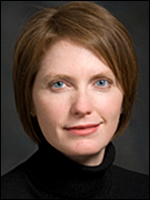 Dr. Grubbs graduated from Duke University Medical School in 1999 during which time she was awarded a Howard Hughes Medical Institute Training Grant. During her General Surgery Residency at Duke University (1999-2006) she spent 2 years in a basic science laboratory performing research through a training National Research Service Award from the National Institutes of Health. After her 2-year Surgical Oncology Fellowship at University of Texas M.D. Anderson Cancer Center (MDACC) she came on faculty at MDACC in 2008. In the 5.5 years since taking this first faculty position she has received a 1-year career development award from the Head and Neck SPORE grant led by MDACC, a 1-year career development award from the Thyroid SPORE grant led by Ohio State University and MDACC and more recently a 5-year American Cancer Society Mentored Scholar Grant.
Dr. Grubbs graduated from Duke University Medical School in 1999 during which time she was awarded a Howard Hughes Medical Institute Training Grant. During her General Surgery Residency at Duke University (1999-2006) she spent 2 years in a basic science laboratory performing research through a training National Research Service Award from the National Institutes of Health. After her 2-year Surgical Oncology Fellowship at University of Texas M.D. Anderson Cancer Center (MDACC) she came on faculty at MDACC in 2008. In the 5.5 years since taking this first faculty position she has received a 1-year career development award from the Head and Neck SPORE grant led by MDACC, a 1-year career development award from the Thyroid SPORE grant led by Ohio State University and MDACC and more recently a 5-year American Cancer Society Mentored Scholar Grant.
Press Release
Jason Prescott, MD, PhD – Johns Hopkins School of Medicine, Baltimore, MD
Development of a High Throughput in vivo Screening System for Small Molecule Activators of Thyroid Differentiation: Identification and Targeting of New Molecular Pathways Involved Thyroid Cancer Progression
Jason Prescott, MD PhD, is an Assistant Professor of Surgery and of Oncology at the Johns Hopkins School of Medicine in Baltimore, MD, where he is also an Attending Endocrine Surgeon. Dr. Prescott completed his medical doctorate (2004) and doctorate of philosophy in molecular biology (2006) through the NIH-funded Medical Scientist Training Program at the University of Colorado. He then matriculated into the Yale University General Surgery residency program, which he completed in 2011, and followed this with formal fellowship training in Endocrine Surgery at the Massachusetts General Hospital/Harvard Medical School in Boston, MA. Dr. Prescott’s lab is developing a Zebrafish animal model of undifferentiated thyroid cancer that has been designed to facilitate rapid, high throughput identification of new anticancer medications and, at the same time, allow elucidation of new subcellular molecular pathways that contribute to thyroid oncogenesis. Using this system, Dr. Prescott and his team not only intend to discover new mechanisms underlying the development of undifferentiated thyroid cancer, but also to directly improve the care of patients suffering from this disease.
Press Release
Brian Untch, MD – Memorial Sloan-Kettering Cancer Center, New York, NY
Mechanisms of Response and Resistance to Farnesyltransferase Inhibition in HRAS-driven Thyroid Tumors
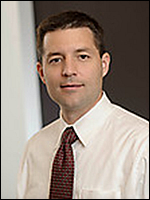 Brian R. Untch, MD is a surgeon-scientist at Memorial Sloan Kettering Cancer Center focused on endocrine and neuroendocrine tumors and malignancies. As a surgeon on both the Head and Neck and the Gastric and Mixed Tumor Services, his goal is to advance the knowledge and treatment options for patients with these conditions. Dr. Untch is from Chicago, Illinois where he attended medical school at Loyola University Medical Center. He then underwent general surgery residency training at Duke University and also completed a surgical oncology research fellowship studying mechanisms of calcium set point changes in hyperparathyroidism in the lab of John Olson, MD, PhD. After residency, he came to New York for a clinical fellowship in surgical oncology at Memorial Sloan Kettering Cancer Center. He was then asked to join the faculty. In the laboratory, Dr. Untch studies the pathogenesis of thyroid cancer and responses to therapy under the mentorship of James Fagin, MD, Chief of the Endocrinology Service and Member of the Human Oncology and Pathogenesis Program.
Brian R. Untch, MD is a surgeon-scientist at Memorial Sloan Kettering Cancer Center focused on endocrine and neuroendocrine tumors and malignancies. As a surgeon on both the Head and Neck and the Gastric and Mixed Tumor Services, his goal is to advance the knowledge and treatment options for patients with these conditions. Dr. Untch is from Chicago, Illinois where he attended medical school at Loyola University Medical Center. He then underwent general surgery residency training at Duke University and also completed a surgical oncology research fellowship studying mechanisms of calcium set point changes in hyperparathyroidism in the lab of John Olson, MD, PhD. After residency, he came to New York for a clinical fellowship in surgical oncology at Memorial Sloan Kettering Cancer Center. He was then asked to join the faculty. In the laboratory, Dr. Untch studies the pathogenesis of thyroid cancer and responses to therapy under the mentorship of James Fagin, MD, Chief of the Endocrinology Service and Member of the Human Oncology and Pathogenesis Program.
Press Release
Bite Me Cancer
Ramona Dadu, MD – The University of Texas M. D. Anderson Cancer Center, Houston, TX
Immune Markers in Medullary Thyroid Cancer (MTC) and Their Clinical Significance
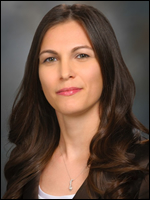 Dr. Ramona Dadu will transition to an Assistant Professor position in the Department of Endocrine Neoplasia & Hormonal Disorders at M.D. Anderson Cancer Center starting July 2014. Dr. Dadu received her MD degree from Iuliu Hatieganu University of Medicine and Pharmacy in Romania, where she also trained in Clinical Pharmacology and Toxicology. After graduation from Internal Medicine residency in Connecticut, she joined Baylor College of Medicine/M.D. Anderson Cancer Center endocrinology fellowship program. During this time, she also matriculated into the Clinical Scientist Training Program where she received extensive training in grant writing, conduct of research, and biostatistics. For the last 2 years of her training, she focused on thyroid cancer research under the mentorship of Dr. Maria E. Cabanillas. She is the author of several peer reviewed publications related to thyroid cancer and received the Women in Endocrinology Young Investigator Award in 2014. She is the recipient of the ATA grant for her research project entitled “Immune markers in medullary thyroid cancer and their clinical significance”. Dr. Dadu has already started collaborations that have enabled her to expand her expertise beyond Endocrinology to Immunology in order to begin to examine the role of immune system in medullary thyroid cancer. Her long term goal is to become an independent investigator and leader in the field of advanced thyroid cancer, with specific focus in immune based therapies.
Dr. Ramona Dadu will transition to an Assistant Professor position in the Department of Endocrine Neoplasia & Hormonal Disorders at M.D. Anderson Cancer Center starting July 2014. Dr. Dadu received her MD degree from Iuliu Hatieganu University of Medicine and Pharmacy in Romania, where she also trained in Clinical Pharmacology and Toxicology. After graduation from Internal Medicine residency in Connecticut, she joined Baylor College of Medicine/M.D. Anderson Cancer Center endocrinology fellowship program. During this time, she also matriculated into the Clinical Scientist Training Program where she received extensive training in grant writing, conduct of research, and biostatistics. For the last 2 years of her training, she focused on thyroid cancer research under the mentorship of Dr. Maria E. Cabanillas. She is the author of several peer reviewed publications related to thyroid cancer and received the Women in Endocrinology Young Investigator Award in 2014. She is the recipient of the ATA grant for her research project entitled “Immune markers in medullary thyroid cancer and their clinical significance”. Dr. Dadu has already started collaborations that have enabled her to expand her expertise beyond Endocrinology to Immunology in order to begin to examine the role of immune system in medullary thyroid cancer. Her long term goal is to become an independent investigator and leader in the field of advanced thyroid cancer, with specific focus in immune based therapies.
Press Release



